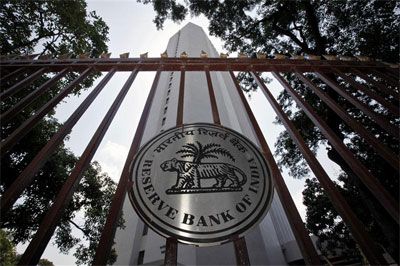Central bank sees action as discriminatory, unfair
 The Reserve Bank of India (RBI) is not comfortable with the fact that commercial banks are not passing the entire benefit of base rate cut to the new customers and likely to engage with the lenders to correct the situation.
The Reserve Bank of India (RBI) is not comfortable with the fact that commercial banks are not passing the entire benefit of base rate cut to the new customers and likely to engage with the lenders to correct the situation.
For instance, State Bank of India (SBI) and ICICI Bank have reduced their base rate , the benchmark to which all loan rates are linked, by 40 and 35 basis points (bps), respectively. However, the home loan rate for new customers has come down by only 20-25 bps; older customers, however, will get the full benefit of the base rate cut.
That is exactly where the regulator is uncomfortable with since banks are charging different rates for customers having similar risk profile.
“This is not in line with the spirit of non-discriminatory pricing. We always insist on treating customers fairly,” a top central banking source said.
“If they have changed the margin for one segment, say automobile or home loans, it could be justified on the ground that the bank’s perception of risk to that segment has changed. But, customers with similar risk profile should not have to pay different rates,” the source added.
The banking regulator is planning to ask details of the schemes from the banks and will also engage with them to convey its view on the issue.
Most banks have reduced interest rates in the past week, after RBI cut its key policy rate by 50 bps at its policy review last Tuesday. SBI’s base rate cut was the largest among the lenders.
But SBI & ICICI Bank has also raised their spread for new customers to protect their margins. Sluggish loan growth, in addition to a rise in loans turning bad, resulting in a dip in interest income, which has impacted the net interest margins of banks significantly in the past three years.
Transmission of monetary policy has been an issue with the central bank for quite a while. RBI has reduced the policy rate by a total of 125 bps during 2015 till date (it is now at 6.75 per cent) but banks’ base rate cut has been no more than 50-70 bps in the period.
A similar issue had surfaced some years earlier, when some banks offered ‘teaser loans’, that is offering a lower rate to new customers by cutting the spread but keeping the base rate intact; older customers continue to pay a higher rate. RBI had come down heavily on such schemes and increased the provisioning requirement for such loans.
For transparency in loan pricing, RBI had constituted a committee under former deputy governor Anand Sinha. The panel had said each bank should have a policy on spreads, approved by the board of directors.
“The board should ensure any price differentiation is consistent with the bank’s credit pricing policy, factoring the risk-adjusted return on capital. Banks should be able to demonstrate to RBI the rationale of the pricing policy,” the committee had said.
An India Ratings report had said banks utilise changes in rates to their advantage, vis-a-vis customers. “A study of the past 10 years shows that in most cases when policy rates have reduced, deposit rates have come down faster and the quantum has also been higher compared to lending rates,” it said. “The same was also true when policy rates were hiked, where lending rates went up and the quantum was also higher compared to deposit rates.”
Bankers’ defence is that monetary transmission comes with a lag and deposits are fixed rate contracts, while any revision in lending rates affects the existing flow in interest income.






